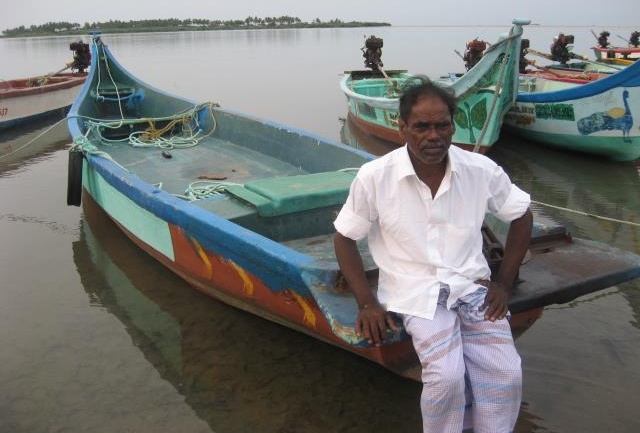Today marks World Health Day and we are reminded of the impact that safe housing has on health.
It is estimated that almost one billion people live in slums today – this means one person in six. Sadly, this statistic doesn’t seem to be slowing down. On average, the global slum population has been growing by six million every year since 2000.
Living conditions in slums, including substandard housing, inadequate access to water and sanitation, place inhabitants’ health at risk and makes them more vulnerable to communicable disease outbreaks.

A typical Cambodian slum
Habitat for Humanity works across the Asia Pacific region to improve housing solutions so families can live healthy, productive and secure lives.
We’ve worked with people like Lima, who was born in one of Bangladesh’s biggest slums and has lived here for 25 years.
“There are a lot of problems in slums but we don’t know how to solve the issues and don’t have the training,” she says.
Habitat has started working in the slum as part of our Building Urban Resiliency project which focuses on improving living conditions, water and sanitation an infrastructure.
Lima, who is on a Habitat-facilitated water and sanitation committee in the slum has always been passionate about community health and believes her family will be healthier, safer and empowered once the hazards in their community are identified and fixed.
In addition, this project has provided waste management training to 250 participants who would share their learning experiences with their community to keep their slum clean.
“Our communities just throw everything around all the time. Even the children play with dirty waste as their toys. Our children are often sick and we spend a lot of money to treat their illneses. I really did not know about the value of different household waste and its management,” said Habizar, one of the participants.
As you can see, in the world’s poorest communities even a small difference can make a big impact when it comes to the health and resiliency of a community. Continue reading below to see how some of the things we take for granted, including a safe home, clean water and solid flooring, can impact health.

A safe home means a healthier future.
The importance of safe housing
Safe housing impacts life expectancy:
• According to UN Habitat, while the poorest 20% in cities struggle to reach 55 years of age, the richest 40 % go well beyond 70 years.
Water and sanitation reduces the spread of diseases:
• More than 2.2 million people in developing countries die from preventable diseases associated with lack of access to safe drinking water, inadequate sanitation and poor hygiene. (UN, 2015)
• 1.8 million people die every year due to diarrhoea and other diseases related to unclean water, with children mostly under five years of age falling victim.
Concrete flooring significantly improves a child’s health:
• Concrete flooring reduces parasite infestations and boosts children’s cognitive abilities.
• According to a recent study, a complete substitution of dirt floors by cement floors in a house leads to a 78% reduction in parasitic infestations, a 49% reduction in diarrhoea, an 81% reduction in anaemia and a 36-96% improvement in cognitive development.
Efficient cooking practices leads to less indoor air pollution:
• 3 billion people cook and heat their homes using solid fuels (wood, charcoal, coal, dung, crop wastes) on open fires or traditional stoves.
• This produces range of health damaging pollutants such as fine particles and carbon monoxide.
• 4.3 million people a year die from the exposure to household air pollution, according to the World Health Organisation (WHO).
Ventilated homes reduce the development of respiratory diseases:
• Damp, moldy conditions contribute to the development of asthma and other respiratory diseases.
• The lack of structurally sound, climate-adapted and ventilated homes puts the health of slum dwellers at risk of climate change-related extreme weather such as heat waves, cold or storms (WHO).
You can help break the cycle of poverty by helping more families access safe and healthy homes. Donate today: habitat.org.au/slums
Find out more:
• Our Development Approach
• World Water Day


